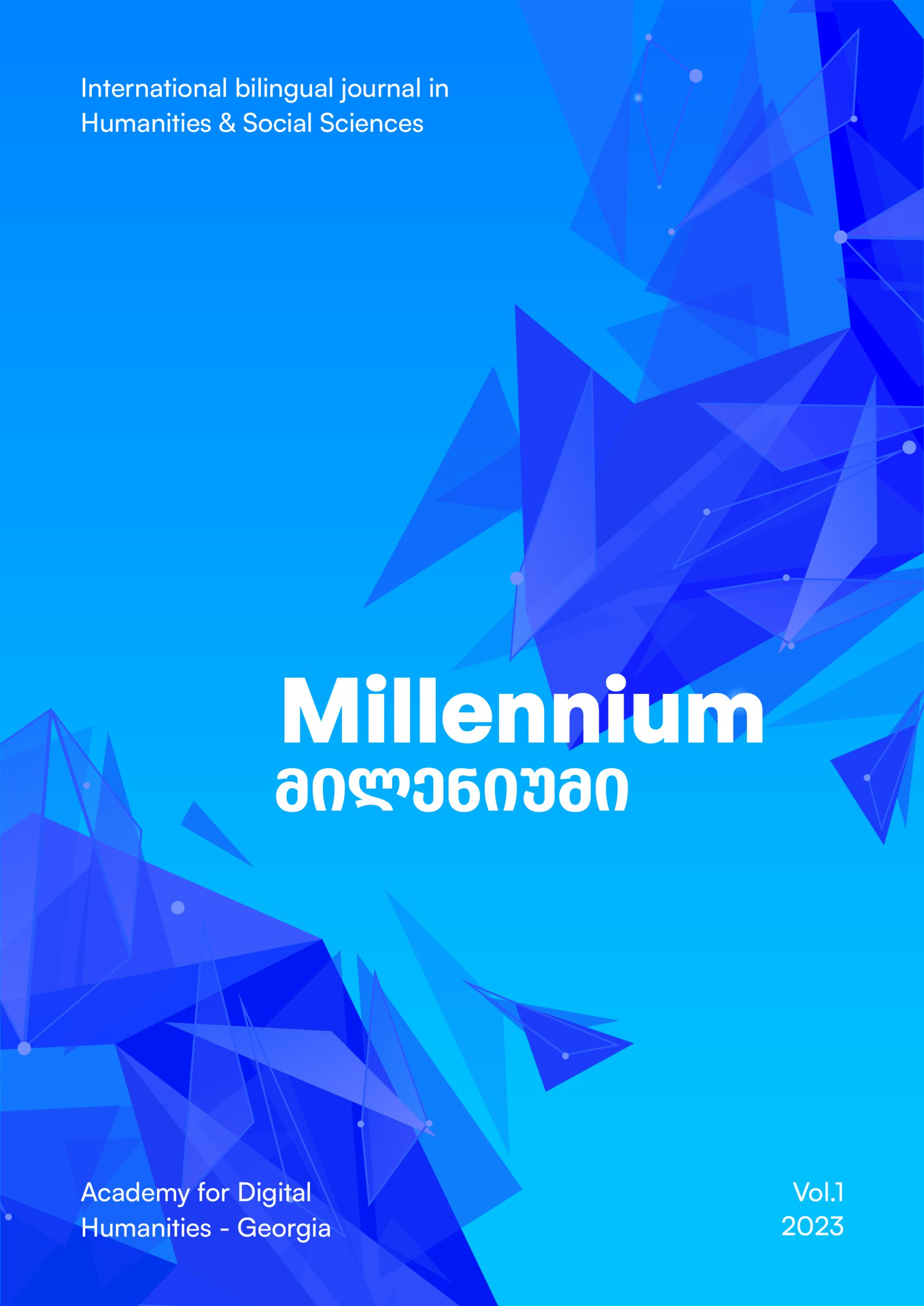The Category of Evidentiality and the Mechanisms of its Expression in Kartvelian Proverbs
Main Article Content
Abstract
Evidentiality is a universal morphosyntactic category of text that can be expressed by morphological, syntactic and lexical means. However, its linguistic expression is diverse not only in non-related but also in related languages (Margiani, Kurdadze, Lomia 2019: 427). Evidentiality as a universal grammatical category “is directly linked to the semantics of the utterance, expressing the attitude of the speaker to the provided information and pointing to the reliable source (direct or indirect) of information“ (Margiani, Kurdadze, Lomia 2019: 17). The category of evidentiality is expressed on the levels of text and discourse by various means, of which the construction with indirect speech is of utmost importance. Special literature has proved that “indirect speech is historically secondary. It is obtained as a result of processing-transformation of direct speech“ (Kvachadze 1977:441).
An empirical analysis has yielded proverbs of simple structure that are expressed by means of subordinate clauses only. Such proverbs are especially productive in the Kartvelian languages. The main clause in such proverbs implies the present and past tense forms of verbs of saying (‘they say’, ‘it is said’, ‘they have said’ and so on). These verbs are omitted due to ellipsis. Such proverbs mention neither a speaker nor an addressee. In such cases, the omitted part (i.e. the main clause) is compensated by particles like Georgian o which indicate indirect speech.
Indirect speech particles are distributed among the Kartvelian languages as follows:

It should be underlined that in Kartvelian proverbs the indirect speech particles of the 3rd person are used systematically while the particles of the 1st and 2nd persons are extremely rare. This can be explained by the fact that the indirect speech particle of the 3rd person in the Kartvelian proverbs generalises the expressed viewpoint and enhances the reliability of the context.
The use of the indirect speech particles in Georgian, Megrelian, Laz and Svan can also be analysed from the viewpoint of evidentiality. As it is known from the scholarly literature, evidentiality is expressed both morphologically and semantically in the Kartvelian languages. Different types of evidentiality are expressed differently on various language levels. For instance, in Georgian, evidentiality is expressed by perfect forms of verbs, by lexical means, by indirect speech markers, by evidential particles, etc. (Topadze-Gäumann 2011).
Interestingly enough, in the Kartvelian proverbs evidentiality can have single (morphological or syntactic), double, and even multiple markers. In the latter case, it is simultaneously expressed by indirect speech particles and by evidential tenses. However, it should be noted that the natural structure of Georgian paremiological units is represented by evidential forms with single markers (mostly indirect speech particles).
